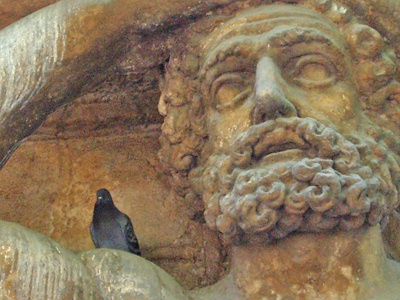All Nonfiction
- Bullying
- Books
- Academic
- Author Interviews
- Celebrity interviews
- College Articles
- College Essays
- Educator of the Year
- Heroes
- Interviews
- Memoir
- Personal Experience
- Sports
- Travel & Culture
All Opinions
- Bullying
- Current Events / Politics
- Discrimination
- Drugs / Alcohol / Smoking
- Entertainment / Celebrities
- Environment
- Love / Relationships
- Movies / Music / TV
- Pop Culture / Trends
- School / College
- Social Issues / Civics
- Spirituality / Religion
- Sports / Hobbies
All Hot Topics
- Bullying
- Community Service
- Environment
- Health
- Letters to the Editor
- Pride & Prejudice
- What Matters
- Back
Summer Guide
- Program Links
- Program Reviews
- Back
College Guide
- College Links
- College Reviews
- College Essays
- College Articles
- Back
THH: Living to Die?
In September of 2014, Dr. Ezekiel Emanuel—famous American bioethicist—published in The Atlantic the article “Why I Hope to Die at 75.” In it, he very simply describes what the title suggests; he doesn’t want to live longer than 75 years old. Written almost simply and yet profoundly insightful, he states, “[b]ut here is a simple truth that many of us seem to resist: living too long is also a loss.”
Barely a month later, rebuttals online popped up to cash or trash his argument. How did the doctor strike a chord, you ask? My advice is, of course, to first read the article (as it’s published online). But consider your own views on life and death.
Considering The End is a grievously static topic. How do you envision yourself dying, if I may ask? Of old age? With a bang, fiery, magical, suddenly and then painlessly gone?
“Compression of morbidity…tells us exactly what we want to believe: that we will live longer lives and then abruptly die with hardly any aches, pains, or physical deterioration…” says Emanuel. It’s an optimistic view, true: yet all we seem to see around us are failing medicines, wasted money on wild treatments, and people forever suffering, suffering, and suffering.
And in that desperate pursuit, we are forever chasing the hopes of an immortal youth. To remain, forever, in our prime, or at least in the entangling love of those who surround us. It’s human nature to believe that is the best course of action: unfortunately, Jack Sparrow is the only one who’s discovered the Fountain of Youth so far. And even worse, it might not even be worth it.
Depending on whom you ask, we live for many, many different reasons. We are here to love one another. We are here to learn, and then teach. We are here to get drunk and feel good. We are here to be one with nature, or God, or perhaps both. World peace is a good one too. But when we have made our mistakes and learned the hard way, loved who we will in this lifetime, or perhaps written our debut and had national spotlights blind our eyes…what’s left? When our different legacies are finally, completely finished, now what?
Then, does the average man just exist? Do we stick around and buy our grandchildren socks and underwear? Are we, as some may put it, just occupying space? The dying process is pulled to a breaking point and those who around us begin to move faster than we can follow. But for us human beings, pushing back our expiration date and seemingly inevitable slew of oncoming diseases, what are we doing? Emanuel says that a specific deadline, 75 years old, forces him at least “…ask whether our consumption is worth our contribution.”
To many readers, these existential demands could be a tad too early. Honestly, I’ve still a long way myself. But our ends are forever on the horizon, no matter how dim the day. And Dr. Ezekiel Emanuel will not be the last to make us stop and wonder, are we living to die?

Similar Articles
JOIN THE DISCUSSION
This article has 0 comments.
What does "THH" stand for? Good question! It's THE HOLY HITCHHIKE... No, I’m not even religious. The name is Ala Nova, and you have entered the domain of my discussion, thought, and paraphernalia. Enjoy, and let loose your commentary and suggestions below. A new column every Friday!